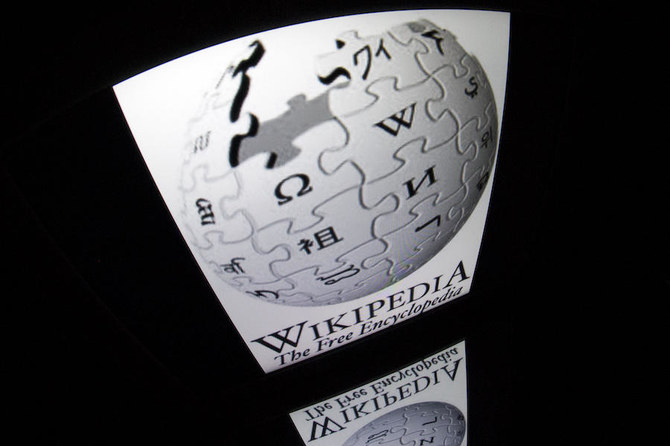SAN FRANCISCO: The foundation that operates Wikipedia will launch its first global code of conduct on Tuesday, seeking to address criticism that it has failed to combat harassment and suffers from a lack of diversity.
"We need to be much more inclusive," said María Sefidari, the chair of board of trustees for the non-profit Wikimedia Foundation. "We are missing a lot of voices, we're missing women, we're missing marginalized groups."
Online platforms have come under intense scrutiny for abusive behavior, violent rhetoric and other forms of problematic content, pushing them to revamp content rules and more strictly enforce them.
Unlike Facebook Inc and Twitter Inc which take more top-down approaches to content moderation, the online encyclopedia, which turned 20 years old last month, largely relies on unpaid volunteers to handle issues around users' behavior.
Wikimedia said more than 1,500 Wikipedia volunteers from five continents and 30 languages participated in the creation of the new rules after the board of trustees voted in May last year to develop new binding standards.
"There's been a process of change throughout the communities," Katherine Maher, the executive director of the Wikimedia Foundation, said in an interview with Reuters. "It took time to build the support that was necessary to do the consultations for people to understand why this is a priority."
The new code of conduct bans harassment on and off the site, barring behaviors like hate speech, the use of slurs, stereotypes or attacks based on personal characteristics, as well as threats of physical violence and 'hounding,' or following someone across different articles to critique their work.
It also bans deliberately introducing false or biased information into content. Wikipedia is a relatively trusted site compared to major social media platforms which have struggled to curb misinformation.
Maher said some users' concerns that the new rules meant the site was becoming more centralized were unfounded.
Wikipedia has 230,000 volunteer editors who work on crowdsourced articles and more than 3,500 'administrators' who can take actions like blocking accounts or restricting edits on certain pages. Sometimes, complaints are decided on by panels of users elected by the communities.
Wikimedia said the next phase of the project would be working on the rules' enforcement.
"A code of conduct without enforcement...is not going to be useful," said Sefidari. "We're going to figure this out with the communities," she said.
Maher said there would be training for communities and interested task-forces of users.
Wikimedia has no immediate plans to beef up its small 'trust and safety' team, a group of about a dozen staff which currently acts on urgent matters such as death threats or the sharing of people's private information, she said.
Wikipedia launches new global rules to combat site abuses
https://arab.news/8zavu
Wikipedia launches new global rules to combat site abuses

- Wikipedia will launch its first global code of conduct on Tuesday
- The new code of conduct bans harassment on and off the site
Hezbollah says Israeli strike killed Al-Manar TV presenter in southern Lebanon

- The Israeli military said later on Monday that Al-Din was a Hezbollah militant who recently worked to rehabilitate the group’s artillery capabilities in southern Lebanon
The Lebanese armed group Hezbollah said on Monday that an Israeli strike in the country’s south killed TV presenter Ali Nour Al-Din, who worked for the group’s affiliated Al-Manar television station.
The group said the killing portends “the danger of Israel’s extended escalations (in Lebanon) to include the media community.”
The Israeli military said later on Monday that Al-Din was a Hezbollah militant who recently worked to rehabilitate the group’s artillery capabilities in southern Lebanon.
Israel and Lebanon agreed to a US-brokered ceasefire in 2024 to end more than a year of fighting between Israel and Hezbollah, which culminated in Israeli strikes that severely weakened the Iran-backed militant group. Since then, the sides have traded accusations over ceasefire violations.
Lebanon has faced growing pressure from the US and Israel to disarm Hezbollah. The group’s leaders fear that Israel could dramatically escalate strikes across the battered country, aiming to push the Lebanese government for quicker action to confiscate Hezbollah’s arsenal.














